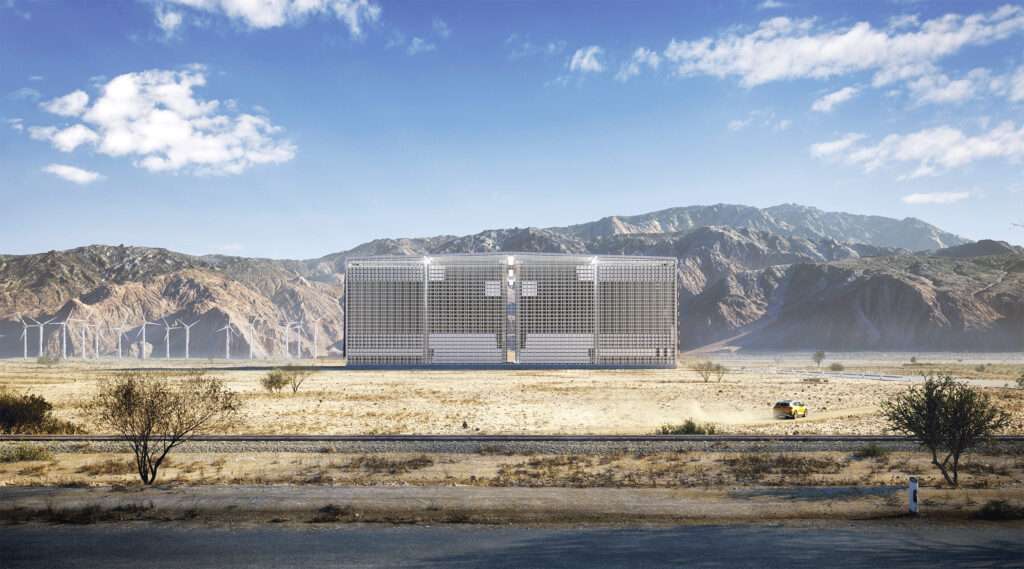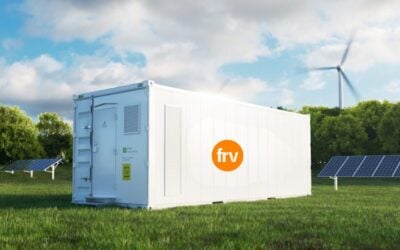
Energy Vault will reveal new form factors to its EVx gravity-based energy storage solution which could deliver the “lowest cost of energy storage in the world”, CEO Robert Piconi claimed to Energy-Storage.news.
The company is currently building the first commercial system which will go online using its gravity energy storage technology in Rudong, China, set to commission this year. The deployment design (pictured above) has changed since the original crane-like system, and further changes could be revealed soon, although they sound less wholesale than that.
“There there will be other, let’s say, form factors of the gravity solution to take advantage of different applications that we’ll be talking about this year. And it’s very interesting, because you can get ultra low costs,” Piconi said.
“If you think about taking advantage of existing topology, or landscapes, that means you’re taking costs out of what otherwise we’d have to build in the structure of EVx, and just taking advantage of certain components that we’ve already built.”
Try Premium for just $1
- Full premium access for the first month at only $1
- Converts to an annual rate after 30 days unless cancelled
- Cancel anytime during the trial period
Premium Benefits
- Expert industry analysis and interviews
- Digital access to PV Tech Power journal
- Exclusive event discounts
Or get the full Premium subscription right away
Or continue reading this article for free
“And then you essentially get to really the lowest cost of storage in the world. There’s nothing out there that would get to these types of CapEx-consequential, let alone levelised cost, of storage, because the blocks don’t degrade over time.”
This sounds like a way of deploying gravity-based solutions in a manner akin to Gravitricity, which has designed its system to go into vertical mine shafts in the earth, storing the energy medium at, and on, ground level (although this is Energy-Storage.news’ interpretation).
Energy Vault has increasingly been expanding into battery energy storage system (BESS) deployments, which Piconi said is because the long duration energy storage market has not taken off as quickly as expected. He said it is part of a strategy of offering short (BESS), medium (gravity) and long-duration energy storage (through green hydrogen) to customers, to be able to provide whatever they need.
But the firm is nonetheless still clearly very focused on the gravity technology for which it is known, claiming 2GWh of project awards for the segment in its first quarter results – although those project awards still need to be converted into firm project orders, as per the company’s reporting methodology.
When asked for more details on these gravity energy storage project awards, Piconi would only say they are all ‘outside of the US’ but ‘not all in China, to be clear’.
Energy-Storage.news will be publishing the full interview with Piconi, touching on projects, strategy, technology and challenges in the coming week.





